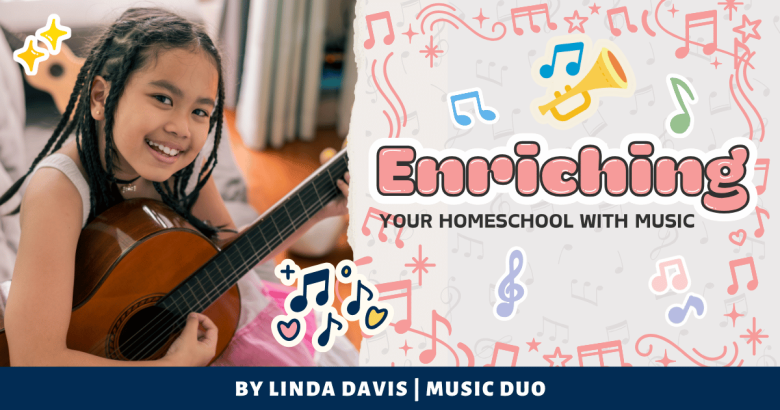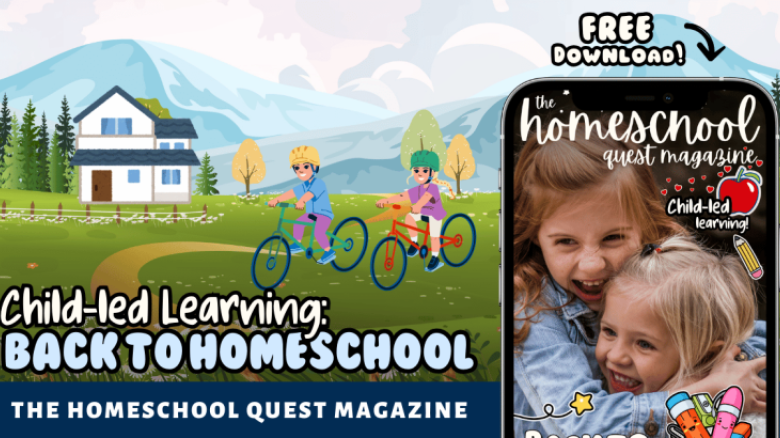By Linda Davis of Music Duo
Music appreciation can be a joyous and bonding experience, developing a life-long love of music. But how do you go about it? Here are a few ideas:
1. Sing together
Start your homeschool day with a favorite song. Better yet, choose themes for each week or month. Patriotic or seasonal will do just fine.
Consider reinforcing other subjects through song. Search on Youtube, or use a well-known melody like Twinkle, Twinkle, Little Star or If You’re Happy and You Know It. Then with your child, create your own lyrics to reinforce recent topics. You might find that your child’s learning is actually sticking!
2. Join A Choir
If you can join a choir together as a family, that’s the absolute best. But that is not always feasible, depending on the choir. But for children, there is usually one of the following options available.
Many church choirs allow children to sing with them. Check out community choirs as well. If your child is a go-getter and can match pitches well, look for an honor choir.
Also, don’t forget public school choirs. Many allow homeschoolers to join. If you are the first to inquire, stand up for your homeschooled children and be a pioneer!
3. Attend Local Concerts
Live music offers a unique experience that recorded music cannot. Seek out local concerts, whether they are orchestras, jazz bands, or smaller ensemble performances. Look for family-oriented concerts as a first-time experience to see if your younger children are ready for more.
4. Explore Different Styles Of Music
Just like the song themes, rotate into different styles of listening music at home. You can include classical, jazz, blues, rock, world, movie music and more.
But you can also dive into different instrumental music like guitar, strings, woodwinds, brass, full orchestra, world instruments, etc. Play instrumental music while your child is studying another subject and see what helps him or her.
5. Take Private Lessons
Don’t count out private lessons either. Ask around for a great teacher who can really take your child to a higher level of playing, creating, and enjoying a lifetime of music. Guitar, piano, violin, recorder, and ukeleles are great starting instruments.
Don’t forget music theory lessons. If you start with those, playing an instrument will be less of a struggle as your child can focus on the technique of playing instead of trying to learn the language of music at the same time.
6. Make Your Own Instruments
Creating your own instruments can be a fun and educational activity. Create drums from household items like buckets or pots, maracas from rice-filled containers, or string instruments from boxes and rubber bands. Your child’s imagination is the only limit!
7. Compose Music
If you already tried suggestion #1 in creating lyrics to help retain cross-curricular concepts, you’ve already started composing. But you can also make up songs for the pure joy of it.
Keep the melody of a well-loved song or create your own. Take your own newly created instruments and create a song with them. If you like technology, try out Google Chrome Music Lab.
Children can play around with pitches, rhythm, tempi, and meter without even really knowing all that theory yet. Don’t forget to record these newly composed songs for posterity.
Set aside a specific time each week for music appreciation. Learn about different composers, historical periods like Baroque, Classical, Romantic, and Impressionistic.
But don’t just stop with the music of these periods. Search out what the art and architecture were like. Also see what major events were happening in the United States or other parts of the world.
Conclusion:
Music is such an important subject that often gets overlooked. Give your child the full benefits of music education by including it on a regular basis, and they will enjoy it for a lifetime!
Remember, there is no right or wrong way to appreciate music. Just include it!
Read More!
- Log in to post comments


